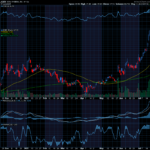A put option is another type of options contract that gives the holder the right, but not the obligation, to sell a specific underlying asset at a predetermined price (strike price) within a specified time frame.
For example, let’s say you believe that the stock price of Company XYZ is going to decrease in the near future, and it is currently trading at $50 per share. You can buy a put option with a strike price of $45 that expires in three months, which means that you have the right to sell 100 shares of Company XYZ at $45 per share within the next three months. If the stock price drops to $40 per share within that time frame, you can exercise your put option and sell the shares at the higher $45 strike price, then buy them on the open market for a profit. However, if the stock price does not decrease, you can let the option expire and only lose the premium (cost) paid for the option.





Recent Comments